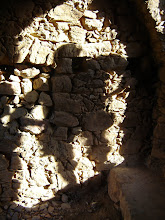Has Alemannia got wind of the discontent felt among Roda fans (see below)? No sooner had I posted my blog last week than these posters (in Dutch) started appearing all over Kerkrade and Heerlen, advertising Alemannia Aachen's inaugural match of the 2009/10 season at the new Tivoli stadium in the city (Alemannia currently plays in the 2nd division of the German Bundesliga).
A number of years ago, Alemannia qualified for the UEFA cup, but because of stadium requirements at the time, they were not allowed to play at the old Tivoli. In consequence, the club submitted a request to UEFA to have their home games played at the new purpose-built, 20,000 seater, Parkstad Limburg stadium, Roda JC's home ground - just 12 kilometres away. A logical choice it would seem. However, the request was turned down on the grounds that clubs representing their football association were not permitted to play outside the territory in which the association's jurisdication held sway. Instead, they played their home legs at FC Cologne's ground, over 60 kilometres away.
Talk about daft!











